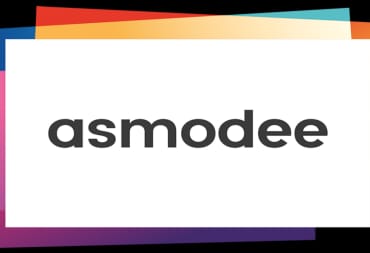What do you think is the most popular Steam game engine? Unreal? Unity? GameMaker Studio? An analyst has crunched some numbers with the help of the folks at SteamDB and revealed the reigning monarch of Steam game engines. Spoiler alert: it's Unity.
Why is Unity the most popular Steam game engine?
It turns out that Unity Technologies' eponymous Unity engine is by far the most popular engine on Steam, just as it is on mobile. GameDataCrunch analyst Lars Doucet teamed up with SteamDB maintainer xPaw to analyze every file name on Steam, checking for extensions and names common to certain engines. What they found is that Unity's dominance in the Steam gaming market started in around 2016 and continues to this day. It's mainly used by smaller and mid-sized projects, but you can find it as the basis for the occasional major triple-A game too. Games that use Unity include Among Us, Phasmophobia, Cities: Skylines, and Ori and the Blind Forest, among others.

The second most popular engine on Steam is Unreal, which overtook the miscellaneous "Unknown" and "Other" categories to take second place this year. For reference, the "Other" category means Doucet and xPaw identified the engine but it was too small to have its own category. "Unknown" is self-explanatory. Unreal is a big deal for higher-end projects like XCOM 2, Sea of Thieves, and Borderlands 3, among others. You're also likely to encounter GameMaker Studio, which was used for Undertale and Katana Zero, and visual novel engine Ren'Py, which runs VN games like Long Live the Queen and Ladykiller in a Bind.
How was this data collected?
Since Doucet and xPaw collected this data using file names rather than contents (which aren't publicly accessible), Doucet admits that there may be some flaws in the data. Many popular engines, like GameMaker, Construct, and Godot, don't always have easily identifiable signatures, so they're "surely undercounted to small or large degree". Doucet and xPaw filtered out free games, unreleased projects, games cheaper than $4.99, and projects without at least 50 reviews. This was done to reduce noise from smaller projects that were "unlikely to represent commercial efforts" and also to "focus on the premium market". Despite these conditions, Doucet says he thinks his data is "pretty okay", and can be used in a broad sense to analyze Steam trends.

There are some more fun info tidbits in Doucet's analysis. RPG Maker and Ren'Py games frequently struggle to get enough scores to get Metacritic aggregates. Despite this, when RPG Maker games do manage to make it onto Metacritic, their scores are higher than other engines' (which may be skewed by a lack of data). Unreal scores consistently lowest on Metacritic, and Unity only gets 1.7 average points more than Unreal. Metacritic data is controversial for many reasons, but it's still interesting to examine these stats. The Unreal Metacritic games rating may be related to the fact that more of its games have Metacritic scores, meaning that even its flops often do, while largely only the successes on the other platforms do.
What else have we learned from Doucet's data?
One particularly interesting point in Doucet and xPaw's analysis is that only big developers create their own engines anymore. Doucet says most games use one of the major commercially available engines - that's Unity, Unreal, GameMaker, and the rest - but that the "top-grossing games" often use custom engines. Furthermore, engines that are part of the "Other" category can include in-house tech like EA's Frostbite, which means, as Doucet points out, the "percentage of non-commodity engines" is even more clear-cut than the infogram implies.
You can check out Doucet and xPaw's full analysis of Steam games and their engines on Gamasutra. There's more info there too regarding whether developers create their own engines, how accurate certain user tags are, and more. If you're a stats nerd and you like to comb sets of data (like we do), then it's well worth a look, if only to watch the hypnotizing infogram showing Unity's rise to power.
Are you a game developer working with Unity? What's your favorite engine? Let us know in the comments below!







